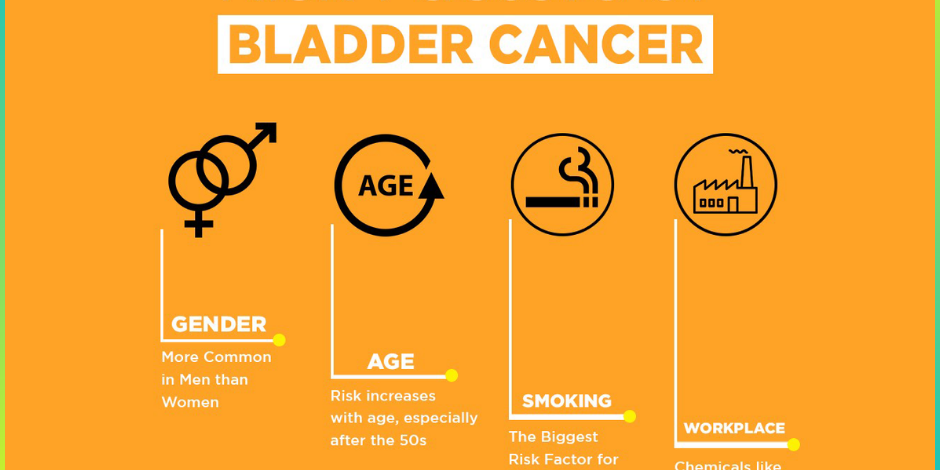Bladder cancer is one of the most common urological cancers, affecting individuals worldwide. While its exact causes remain unknown, several risk factors can increase your chances of developing this condition. Understanding these risk factors is crucial for early detection and prevention.
At Urovision Urology Care Clinic, Dr. Pawan Rahangdale, a leading urologist in Pune, is committed to raising awareness about bladder cancer and providing expert care to patients.
What is Bladder Cancer?
Bladder cancer occurs when abnormal cells in the bladder lining grow uncontrollably. It most commonly affects the urothelium, the tissue lining the inside of the bladder. Early detection significantly improves treatment outcomes.
Key Risk Factors for Bladder Cancer
1. Smoking
Cigarette smoking is the leading risk factor for bladder cancer. Tobacco contains harmful chemicals that accumulate in the urine, damaging the bladder lining over time. Smokers are up to three times more likely to develop bladder cancer than non-smokers.
2. Chemical Exposure
Prolonged exposure to industrial chemicals, such as dyes, rubber, leather, paint, and petroleum products, can increase the risk. Workers in manufacturing industries are particularly vulnerable.
3. Chronic Bladder Irritation
Conditions like recurrent urinary tract infections (UTIs), bladder stones, or prolonged catheter use can cause chronic inflammation, raising the risk of bladder cancer.
4. Age and Gender
- Age: Bladder cancer is more common in older adults, with most cases occurring in people over 55.
- Gender: Men are more likely than women to develop bladder cancer, although women often face delayed diagnoses, leading to more advanced cases.
5. Family and Personal History
- A family history of bladder cancer increases susceptibility.
- Individuals previously treated for bladder cancer are at higher risk of recurrence.
6. Genetic Mutations
Inherited genetic mutations can predispose individuals to bladder cancer. Specific syndromes, like Lynch syndrome, are associated with an increased risk.
7. Medications and Treatments
- Long-term use of certain medications, such as cyclophosphamide, can heighten bladder cancer risk.
- Radiation therapy to the pelvis can damage the bladder lining, increasing susceptibility.
8. Arsenic in Drinking Water
Drinking water contaminated with arsenic, common in certain regions, has been linked to a higher incidence of bladder cancer.
9. Low Fluid Intake
Reduced water consumption can lead to a concentrated accumulation of carcinogens in the urine, which may damage the bladder lining.
10. Infections
In some parts of the world, infections caused by the parasite Schistosoma haematobium are linked to a higher risk of a specific type of bladder cancer called squamous cell carcinoma.
Preventing Bladder Cancer
While some risk factors like age and genetics cannot be controlled, adopting a healthy lifestyle and taking preventative measures can reduce your risk:
- Quit smoking.
- Use personal protective equipment if working with hazardous chemicals.
- Stay hydrated to flush out harmful substances.
- Maintain regular medical checkups if you have a family history of bladder cancer.
Why Choose Dr. Pawan Rahangdale at Urovision Urology Care Clinic?
At Urovision Urology Care Clinic, Dr. Pawan Rahangdale specializes in diagnosing and treating bladder cancer. With advanced diagnostic tools and personalized care, he ensures the best possible outcomes for his patients. His expertise and compassionate approach make him a trusted name in urology care in Pune.

